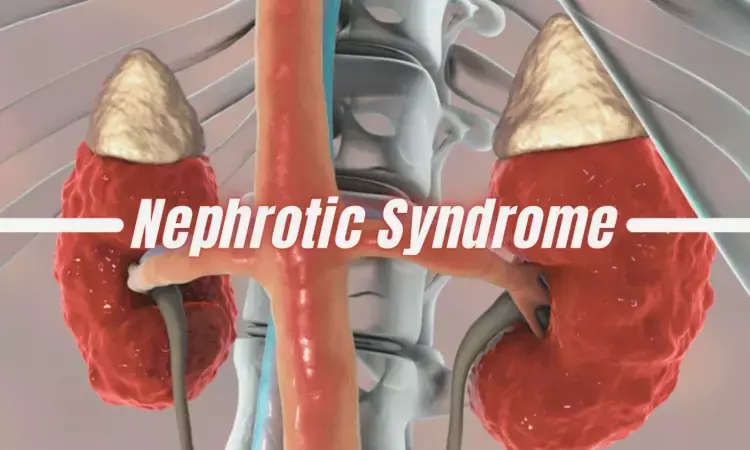- Home
- Medical news & Guidelines
- Anesthesiology
- Cardiology and CTVS
- Critical Care
- Dentistry
- Dermatology
- Diabetes and Endocrinology
- ENT
- Gastroenterology
- Medicine
- Nephrology
- Neurology
- Obstretics-Gynaecology
- Oncology
- Ophthalmology
- Orthopaedics
- Pediatrics-Neonatology
- Psychiatry
- Pulmonology
- Radiology
- Surgery
- Urology
- Laboratory Medicine
- Diet
- Nursing
- Paramedical
- Physiotherapy
- Health news
- Fact Check
- Bone Health Fact Check
- Brain Health Fact Check
- Cancer Related Fact Check
- Child Care Fact Check
- Dental and oral health fact check
- Diabetes and metabolic health fact check
- Diet and Nutrition Fact Check
- Eye and ENT Care Fact Check
- Fitness fact check
- Gut health fact check
- Heart health fact check
- Kidney health fact check
- Medical education fact check
- Men's health fact check
- Respiratory fact check
- Skin and hair care fact check
- Vaccine and Immunization fact check
- Women's health fact check
- AYUSH
- State News
- Andaman and Nicobar Islands
- Andhra Pradesh
- Arunachal Pradesh
- Assam
- Bihar
- Chandigarh
- Chattisgarh
- Dadra and Nagar Haveli
- Daman and Diu
- Delhi
- Goa
- Gujarat
- Haryana
- Himachal Pradesh
- Jammu & Kashmir
- Jharkhand
- Karnataka
- Kerala
- Ladakh
- Lakshadweep
- Madhya Pradesh
- Maharashtra
- Manipur
- Meghalaya
- Mizoram
- Nagaland
- Odisha
- Puducherry
- Punjab
- Rajasthan
- Sikkim
- Tamil Nadu
- Telangana
- Tripura
- Uttar Pradesh
- Uttrakhand
- West Bengal
- Medical Education
- Industry
High UBUR Independent Predictor of Proteinuria Remission in Nephrotic Syndrome, suggests study

Researchers have found in a new study that high urine-to-blood urea nitrogen ratio (UBUR) is an independent predictor of proteinuria remission in adults with nephrotic syndrome and shows promise as a simple, valuable biomarker for guiding disease management. The findings, published in Clinical and Experimental Nephrology by Kamal Kant Kohli and colleagues, highlight the role of UBUR as a non-invasive and cost-effective measure that can assist clinicians in predicting outcomes more reliably than conventional markers. Nephrotic syndrome is a chronic glomerular disorder characterized by heavy proteinuria, hypoalbuminemia, and edema, and remains a therapeutic challenge despite advances in medical care. By identifying UBUR as a predictive factor, this study adds a new dimension to risk stratification and treatment monitoring in patients with the condition.
The research examined adult patients with nephrotic syndrome and assessed the relationship between baseline UBUR levels and subsequent remission of proteinuria under treatment. Higher UBUR values were consistently associated with better remission rates, independent of age, sex, baseline renal function, and treatment modalities. Unlike more complex or costly biomarkers, UBUR can be derived from routine urine and blood tests, making it practical for widespread clinical use. The study suggests that UBUR may reflect the balance between renal filtration and systemic metabolic clearance, offering insights into disease activity and treatment responsiveness. Importantly, this predictive value was observed across different etiologies of nephrotic syndrome, supporting its generalizability in diverse clinical contexts.
The authors conclude that UBUR could be incorporated into regular patient evaluations to improve clinical decision-making and personalized management of nephrotic syndrome. By helping to identify which patients are more likely to achieve remission, clinicians may be able to optimize therapy, monitor progress more effectively, and counsel patients with greater accuracy. The study also calls for further validation in larger and more diverse cohorts, as well as exploration of how UBUR interacts with other biomarkers of renal disease. As nephrology moves toward precision medicine, UBUR may become a valuable addition to the toolkit for improving outcomes in patients with proteinuric kidney disease.
Dr. Shravani Dali has completed her BDS from Pravara institute of medical sciences, loni. Following which she extensively worked in the healthcare sector for 2+ years. She has been actively involved in writing blogs in field of health and wellness. Currently she is pursuing her Masters of public health-health administration from Tata institute of social sciences. She can be contacted at editorial@medicaldialogues.in.
Dr Kamal Kant Kohli-MBBS, DTCD- a chest specialist with more than 30 years of practice and a flair for writing clinical articles, Dr Kamal Kant Kohli joined Medical Dialogues as a Chief Editor of Medical News. Besides writing articles, as an editor, he proofreads and verifies all the medical content published on Medical Dialogues including those coming from journals, studies,medical conferences,guidelines etc. Email: drkohli@medicaldialogues.in. Contact no. 011-43720751


